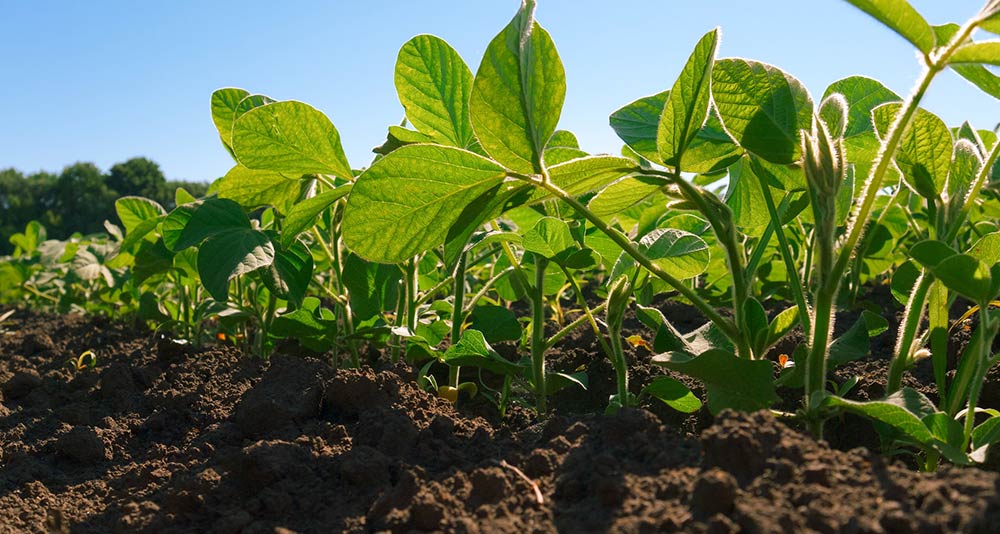October 8, 2015
National Organic Standards Board
USDA-AMS-NOP
1400 Independence Avenue, SW,
Room 2648, Ag Stop 0268,
Washington, DC 20250
Docket No. AMS-NOP-15-0037
Submitted electronically via www.regulations.gov
RE: OFRF Comments on the Importance of Organic Agriculture Research to the National Organic Standards Board
On behalf of the Organic Farming Research Foundation (OFRF), we submit the following comments to the National Organic Standards Board (NOSB), U.S. Department of Agriculture’s (USDA) in advance of their upcoming public meeting.
The Organic Farming Research Foundation (OFRF) is a national, public-interest organization founded in 1990 to foster the improvement and widespread adoption of organic farming systems. The organization was founded as a response to rising demand for organic agriculture research, extension and education to meet the information needs of a growing community of organic farmers and to educate the public and policy decision-makers about organic farming issues.
The essential challenge for all of agriculture is to make rapid advances in resilience and harm reduction despite the pressures of intensification. The most developed (or the least underdeveloped) extant systems integrating economic success with ecological performance and stable productivity are in fact certified organic systems, especially the most advanced/longest established production systems. This is the case despite the historic underinvestment and nascent success of USDA organic research efforts compared to funding for conventional agriculture. Organic agricultural systems are by far the most easily leveraged platform for the rapid progress that must be made specifically in terms of soil carbon/health, pollinators, water pollution, drought resistance and other biological and climatological imperatives for this century’s agriculture.
Government research and policy initiatives often play a key role in the adoption of new farming technologies and systems, which is why research funded by USDA is so important. The recently released survey by USDA shows no measurable increase in organic acreage in the U.S. which is counter to the current goal to increase the number of certified organic operations and is expanding programs and services for organic producers and handlers.
Increased Demand for Organic Research
The demand for research on organic agriculture is outpacing the available funds in this program for researchers and the need for information on the part of organic farmers. According to the National Institute of Food and Agriculture (NIFA), only 38% of the applicants to the Organic Transitions Program receive funding. Your own (NOSB) has identified a number of organic research priorities that cannot be funded due to a lack of resources. Increased funding for the research priorities identified by NOSB would address some of the issues that limit the growth of the organic industry.
OFRF recently completed a research survey identifying the needs of organic farmers and ranchers to improve the agricultural, environmental, and economic performance of their production systems. Over 1,000 organic famers have shared their practical challenges and research needs- while needs are diverse, there are some common threads. The most common challenge reported by farmers in the survey was weed control, with pest control, soil health, and coping with water shortages and flooding also commonly reported as top research priorities.
In consideration of the need for continued investment in research to support organic producers, we offer the following recommendations to the NOSB board to provide an overview of the research needs of organic farmers.
- Improve and retain soil health as the basis of agricultural production.
- Techniques for the adoption of large scale organic agriculture – i.e. production techniques, technologies, transition methodologies, marketing strategies.
- Retention of current producers and access for new farmers or how to entice new farmers/ranchers; i.e. access to land and financing, economic support, training and long-term mentoring.
- Review of the whole systems approach for weed, insect, and disease management for production systems, i.e. vegetable, animal, fruit, etc., and especially for mixed systems.
- Effects of non-diversity in production management, i.e. only using GMO seeds, only chemical spray, etc.
- Improve and meet market demand for organic agriculture products nationally and internationally.
- As part of a systems approach, not only provide scientifically based research, but also create a strategy to educate for the adoption of the research results.
- Breeding specific for organic production to enhance nutritionally dense products and stress reliance.
- Enhancement of the medium-scale producer level from production to economic research needs so that this level of production will not be lost in the US agricultural landscape.
- Measure the benefits of ecosystem services as multiple services within the production system framework and how to enhance these services and potential for economic benefits to producers.
These are just a few examples of organic research which OFRF believes would increase the number of organic acres and farmers in the United States. Increased production of organic products is critical as last year sales of organic produce and food products grew by 11%. While U.S. organic exports totaled $537 million in 2013, the value of U.S. organic imports was a staggering $1.4 billion in 2013. Ironically, many of these products such as wine, soybeans and corn could be produced or grown in the United States. With growing consumer demand for organically produced goods, the market is providing economic incentives for U.S. farmers across a broad range of products but barriers to this transition remain due to a lack of research.
OFRF is committed to working with NOSB and USDA as a partner to represent the needs of the organic research community and organic farmers. The issues we raise in our comments reflect our communication and work with the broader organic community.
Thank you for your time and increased attention to research needs to help the organic industry continue to grow while maintaining the standards necessary to ensure the integrity of the organic certification system.
Sincerely,
Brise Tencer
OFRF Executive Director
Jane E. Shey
Policy Associate



